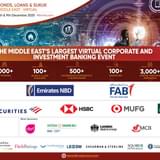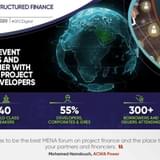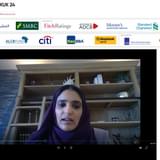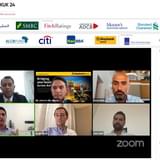For governments in particular, this need has become much more urgent following years of increased global market volatility and political uncertainty that, despite our best hopes, doesn’t appear to be dissipating anytime soon.
What Is a Sukuk?
Sukuk are capital markets instruments that comply with Islamic legal principles (sharia) and resemble conventional bonds – the main difference being that sukuk require underlying assets used as a means of generating cashflows.
Sukuk is an increasingly accepted instrument in both the traditional fixed income and Islamic finance affinity markets. It is predominantly asset-based / unsecured instrument similar in economics and ranking to conventional senior bonds.
The core structure of a sukuk can be illustrated by one of the most popularly deployed variants: an Ijara sukuk. These typically see an obligor set up a special purpose vehicle (SPV) to hold the underlying sukuk assets, usually leasable assets which must be sharia-compliant, on behalf of investors.
Under an Ijara structure, an SPV issues the sukuk to investors in exchange for the proceeds. The SPV then uses the proceeds to purchase the beneficial ownership, or usufruct, in leasable assets – such as land, real estate, and the like. The SPV then leases those assets back to the obligor for a term equal to the tenor of the instrument, and uses the rental fees paid to the SPV as coupon payments. This enables sukuk to avoid conflicting with Islamic principles, which forbids interest. The governments of South Africa, Dubai, Turkey and Luxembourg are among those that have issued Ijara sukuk.
There are several other common sukuk structures – variations on the above – but most are now widely accepted and understood by both traditional fixed-income investors, sharia-compliant investors as well as by the international rating agencies. The Wakala structure, for instance, which can use leasable assets as described above in combination with sharia-compliant shares in companies or other sharia compliant financial assets to support coupon payments, has become a preferred mode of issuance due to the degree of flexibility it affords borrowers. The governments of Malaysia, Indonesia, and Hong Kong are among those that have issued Wakala sukuk.
The Outlook: Why Issue Sukuk?
The Islamic finance industry accounts for an estimated USD1.9tn in assets as of the end of 2016, with about USD320bn in outstanding sukuk, according to figures from Standard & Poor’s. While the bulk of these assets are concentrated in majority-Muslim countries, there is evidence to suggest the Islamic capital markets have become increasingly attractive to diverse – both geographically and sectorally – range of issuers.
The Sukuk market has continued to grow and diversify over recent years and is now able to accommodate a wide range of tenors and structures from a diversified range of issuers.
The year 2014 was a watershed moment for sovereign sukuk in particular, with the governments of the UK, South Africa, Hong Kong and Luxembourg each making their debut in the global sukuk market through a range of US dollar, pound and euro-denominated offerings. In 2015, nearly 44% of global sukuk issuance emerged from Asia, while nearly 8% of sukuk was issued by European entities.
Despite the continuing impact of lower oil prices, 2016 saw a record year in the International Sukuk market with volumes surpassing previous record levels last seen in 2014. Asian issuers continue to make up a significant proportion of overall issuance volumes in recent years. SSAs continue to constitute the largest proportion of Sukuk issuers with the Islamic Development Bank being the largest International Sukuk issuer, having placed in excess of USD16bn worth of International Sukuk to date.
Sukuk volumes in 2017 look set to surpass 2016 by some margin, led by GCC sovereign issuers looking to make sizeable Sukuk issues after successfully tapping the conventional bond markets last year. Saudi Arabia made its debut in the market earlier this year with the largest ever USD-denominated Sukuk (USD9bn). The international Sukuk market has seen robust volumes of over USD24bn to date which equals the record volumes seen in 2016. In fact, the Sukuk market opened in 2017 with the debut Sukuk offering from African Finance Corporation – the first ever Sukuk offering from an African supranational.
This broader shift among non-typical sukuk issuers to enter the Islamic finance market has several distinct drivers, and chief among them is the diversification of investment sources. Sukuk-affinity investors typically do not have a mandate to invest in conventional bonds. Therefore, a sukuk would represent an alternative source of debt funding as the targeted investor base will not have invested in the issuer’s existing bond offerings.
When the government of Hong Kong issued its inaugural sukuk, for instance, it did so with the explicit intention of broadening its investor base and tapping into new liquidity pools – an objective it successfully achieved. Its USD1bn Ijara sukuk launched in September 2014 saw close to 36% of the notes allocated to accounts based in the Middle East, 6% to accounts in Europe and 11% to accounts in the US – an atypical investor distribution for the Hong Kong government, and one that allowed it to effectively mitigate its overall credit risk.
Sukuk provides competitive pricing as compared to a conventional bond. This is mainly due to the ability to create price tension between the Islamic and conventional investors. In some cases, this has allowed sovereigns and corporates to price Sukuk at slightly tighter levels than their conventional bond offerings. Additionally, given most Sukuk investors are often Hold to Maturity investors, Sukuk pricing tends to be more resilient than comparable conventional credit instruments in the secondary markets, an important factor to consider at a time of rising economic and political volatility globally.
The sukuk-dedicated investor base represents a growing source of liquidity. This is in part due to the limited sukuk issuances in the global market and increase in sharia-compliant assets under management. The scarcity of high-quality sovereign sukuk assets means sukuk issuances often see a combination of price compression and oversubscription – another key driver for issuing. Hong Kong’s debut USD1bn Ijara sukuk due September 2019 was oversubscribed nearly five times, allowing it to tighten pricing to 2.005% – just 23bp over US Treasury notes of comparable tenor; the UK’s GBP200mn (approx. USD343mn) July 2019 Ijara sukuk was oversubscribed ten times over.
For these reasons, creating a sukuk benchmark for private sector issuers has become an important driver for sovereign and quasi-sovereign entities tapping into these instruments. This was one of the leading drivers behind the UK’s 2014 sukuk sale: “We have seen very strong demand for the sukuk, resulting in a price that delivers good value for money for the taxpayer. I hope that the success of this government issuance will encourage further private sector issuances of Sukuk in the UK,” said then UK Chancellor of the Exchequer George Osborne following the transaction’s launch.
A Way Forward
While global sukuk issuance is on track to hit record levels this year, the asset class is not without its challenges. Chief among these is a lack of standardization, across some countries and regions, on things like documentation, supervision and regulatory frameworks, enforceability and dispute resolution.
In countries where sukuk – including the regulatory, legislative and institutional framework – is well-developed, like Malaysia, these issues are not very pronounced. But in jurisdictions where Islamic finance is still new, standardization of key aspects of Islamic financing remain a key challenge. The lack of centralised sharia boards in some jurisdictions can also make it difficult or more time-consuming for sukuk issuers to come to market; at the same time, some global investors have raised concerns over the lack of regulatory clarity surrounding tax treatment of sukuk vis-à-vis conventional credit alternatives.
These challenges need to be addressed. Thankfully, the industry is heading in the right direction. Standard setting bodies like the Bahrain-based Accounting and Auditing Organisation for Islamic Financial Institutions (AAOIFI) are working hand-in-hand with financial institutions, governments, investors and issuers to help deliver investor-friendly and globally replicable standards on Islamic finance and sukuk specifically. Conventional asset managers have over the past five years consistently increased their exposure to the asset class, pushing tenors to new lengths and bringing sukuk into the mainstream, while a broadening range of financial intuitions have started cultivating the key skills and expertise necessary to support issuers and borrowers in their sharia-compliant fundraising efforts. All of this is good news for borrowers, all of whom seek competitively-priced capital instruments to help diversify their investment sources.





